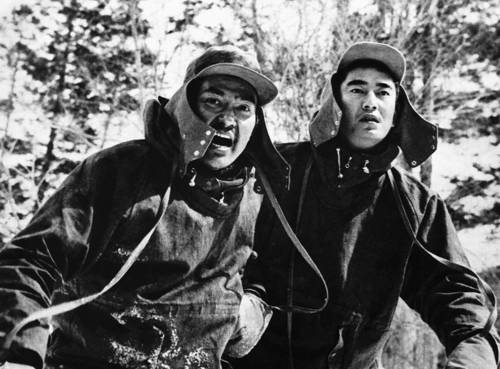
FAQ About The Impact of Yakuza Films on Global Cinema

What are Yakuza films?
Yakuza films are a genre of Japanese cinema that focus on the life and operations of the Yakuza, which are traditional organized crime syndicates in Japan. These films often portray themes of loyalty, honor, and betrayal, and are known for their gritty realism and complex characters.

How have Yakuza films influenced global storytelling techniques in cinema?
Yakuza films have influenced global storytelling through their emphasis on intricate narratives, moral ambiguity, and character-driven plots. Filmmakers worldwide have adopted these techniques to create stories with complex characters and unpredictable plot developments. The genre's use of flashbacks and non-linear storytelling has also been incorporated into various international films.

Which character archetypes from Yakuza films have become popular in world cinema?
One of the most influential archetypes from Yakuza films is the 'noble gangster' who, despite operating outside the law, follows a strict code of ethics. Other archetypes include the 'loyal right-hand man' and the 'rookie member,' both of which have been adapted in international films showcasing organized crime groups.

Can you name some iconic Yakuza films and their global impact?
Iconic Yakuza films include "Battles Without Honor and Humanity" directed by Kinji Fukasaku and "Tokyo Drifter" by Seijun Suzuki. These films have received global recognition for their unique storytelling style and have influenced directors such as Quentin Tarantino, Martin Scorsese, and John Woo.

What cultural perceptions do Yakuza films project about Japanese society?
Yakuza films often explore the duality of loyalty and betrayal within a rigid societal structure, reflecting broader Japanese themes of group versus individual interests and the conflict between traditional values and modernity. They can both glamorize and critique the Yakuza lifestyle, offering a nuanced view of their position in Japanese culture.

How do Yakuza films differ from other gangster film genres?
Yakuza films differ from other gangster films primarily through their cultural context, focusing on the traditions, symbols, and societal roles of the Yakuza in Japan. They tend to emphasize themes of loyalty, honor, and retribution more so than their Western counterparts, which often focus on power and wealth.

What themes are commonly found in Yakuza films?
Common themes in Yakuza films include loyalty, betrayal, revenge, and the struggle between traditional values and modern life. They often depict the conflicts within crime syndicates and the personal conflicts of characters trying to balance their moral codes with their illegal activities.

How do Yakuza films portray the moral ambiguity of their characters?
Yakuza films frequently portray their characters as morally complex, with protagonists who may commit violent or illegal acts but are also shown to possess loyalty, honor, and personal codes of ethics. This moral ambiguity challenges audiences to sympathize with characters that exist outside legal boundaries.

What storytelling techniques from Yakuza films are used in Western cinema?
Western cinema has adopted several storytelling techniques from Yakuza films, such as non-linear narratives, flashbacks, character-centric plots, and the exploration of moral ambiguity. This cross-cultural exchange has enriched global film narratives, allowing for more sophisticated and intricate storytelling.

Why are Yakuza films an important part of Japanese cultural cinema?
Yakuza films are a significant part of Japanese cultural cinema because they reflect and critique aspects of Japanese society, including themes of honor, loyalty, and the impact of modernization. They offer insights into the societal role of the Yakuza and serve as a lens through which audiences can explore complex cultural narratives.

What role does music play in Yakuza films?
Music in Yakuza films often accentuates the emotional and dramatic tone of the scenes. It is used to enhance the tension during intense sequences or underscore the melancholy and loneliness of its characters. Directors like Seijun Suzuki have used jazz and pop music to create a distinct atmosphere that complements the film's aesthetic.

In what ways have Yakuza films influenced other Asian cinemas?
Yakuza films have influenced other Asian cinemas, particularly in South Korea and Hong Kong, by inspiring similar genres that focus on organized crime and complex character studies. The blending of action, drama, and intricate storylines seen in Yakuza films has inspired filmmakers across Asia to adopt similar thematic and narrative structures.

How do Yakuza films address the conflict between traditional and modern values?
Many Yakuza films highlight the tension between tradition and modernity, often portraying characters who grapple with maintaining traditional codes of honor while facing the challenges of a fast-changing society. This struggle reflects broader societal issues in Japan, such as generational conflicts and the impact of Western influence.

What cinematic techniques are commonly used in Yakuza films?
Yakuza films often utilize stylistic elements such as stark contrasts, dynamic camera angles, and meticulous visual composition to convey the intensity and complexity of their narratives. The use of color, lighting, and distinctive framing techniques plays a significant role in creating the film's mood and highlighting key thematic elements.

What is the historical context behind the rise of Yakuza films?
The rise of Yakuza films in the post-war era can be attributed to a reflection of Japan's rapid societal changes and the integration of Western influences. The films served both as a form of entertainment and social commentary on the reconstruction period, providing audiences with narratives that echoed real-life challenges and aspirations.

Which well-known directors are associated with Yakuza films?
Renowned directors like Kinji Fukasaku, Seijun Suzuki, and Takeshi Kitano are well-known for their contributions to the Yakuza film genre. Each brought a unique style and perspective, helping to shape the genre into a dynamic and influential element of Japanese cinema.

Do Yakuza films accurately represent the real Yakuza?
While Yakuza films offer a dramatized portrayal of organized crime in Japan, they often include elements drawn from reality, such as the hierarchical structure and codes of conduct within the Yakuza. However, the films are entertainment-focused and may exaggerate or oversimplify certain aspects for dramatic effect.

How do Yakuza films explore personal identity and loyalty?
Yakuza films frequently delve into themes of personal identity and loyalty, portraying characters who must navigate the complexities of allegiance to their syndicate while dealing with their own moral and existential questions. These films often depict the inner conflict of choosing between personal values and group loyalty.

Have Yakuza films been recognized in international film festivals?
Yes, many Yakuza films have been recognized at international film festivals, earning awards and critical acclaim for their storytelling, direction, and unique artistic style. These accolades have helped to elevate the genre's status on the global stage and attract a wider international audience.

What future trends are expected for Yakuza films in global cinema?
As global cinema continues to embrace cultural diversity and complex storytelling, Yakuza films are likely to further influence international filmmakers. Future trends may include hybrid genres that blend Yakuza themes with other cultural narratives, as well as more nuanced explorations of the socio-political aspects of organized crime.
